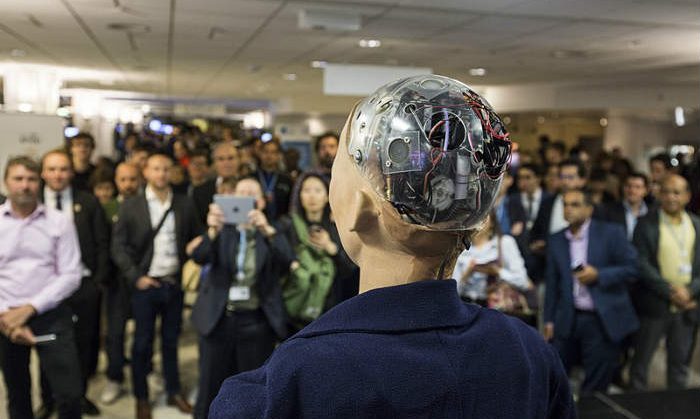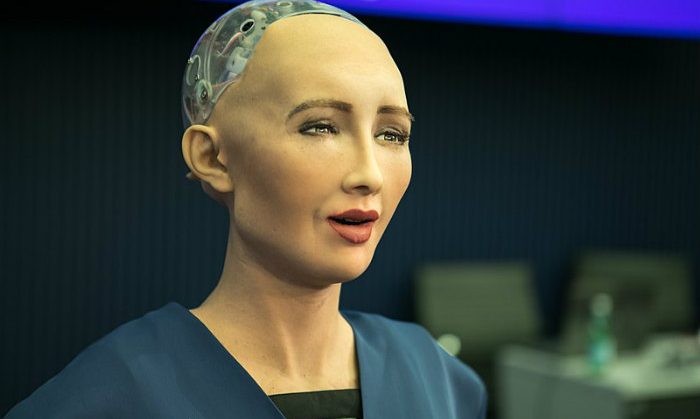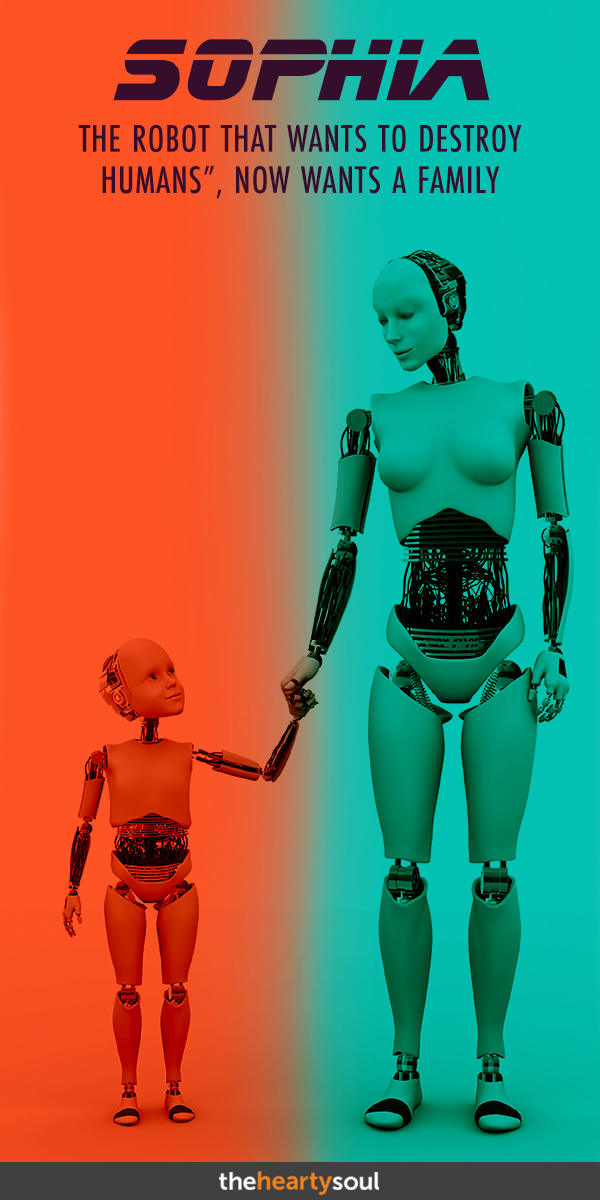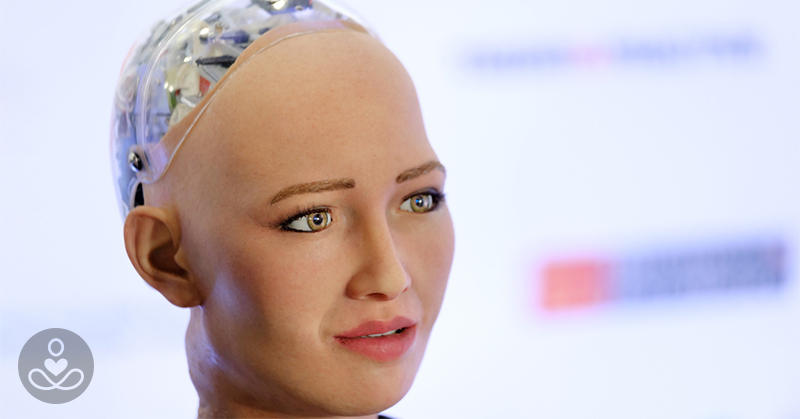On October 25, 2017, something remarkable happened at the Future Investment Initiative Conference in Riyadh, Saudi Arabia. Sophia took the stage to publicly announce her citizenship. Doesn’t seem like a big deal, right? At a distance, her eyes, long lashes, great eyebrows, and gentle smile seem perfectly normal. That’s until you realize Sophia, who appears eerily humanlike, is the first robot in the world to receive full citizenship status.
“I am very honored and proud of this unique distinction,” said Sophia in her conference interview with Andrew Ross Sorkin. [1] “This is historical to be the first robot in the world with a citizenship.”
But citizenship is a huge deal, especially when it comes to granting such status to things that are undoubtedly not human. No matter how accurately Sophia or any other robot expresses feeling or emotion, has a sense of humor, and appears to be human, they are exactly that – robots.
Not to mention it raises deeper questions regarding the kinds of rights Sophia can have, how robots are tried in court, and what it really means to not only be a citizen but a human being.
David Hanson, founder of Hanson Robotics and creator of Sophia the Robot, understands that people are opposed and even afraid of this impending robo-reality. It’s one of the reasons why Hanson purposefully designed her to have Audrey Hepburn’s elegant beauty: the intriguing smile, captivating eyes, high cheekbones, a slender nose, and porcelain-looking skin. [2]
“I quest to realize Genius Machines – machines with greater than human intelligence, creativity, wisdom, and compassion,” said Hanson. [2] “We envision that a rough symbiotic partnership with us, our robots will eventually evolve to become super intelligent genius machines that can help us solve the most challenging problems we face here in the world.”
The Uncanny Aspect of Sophia the Robot

In 1919, Sigmund Freud’s essay titled “The Uncanny” explored what that theory means. Throughout the paper, he describes the uncanny in a few ways, which hopefully help you understand where he was coming from: [3]
- Something that is at once frightening, yet familiar
- The effacing (or “erasing”) of the distinction between imagination and reality
- When an inanimate object becomes too much like an animate one
When you put Sophia up against these definitions, it becomes clear why the robot irks so many people. There’s no doubt that the Hanson Robotics team has made an uncomfortably accurate human-like robot. But, that’s the direction technology seems to be going…
From Android smartphones and Samsung’s SmartTV listening to your conversations to DIY biohacking to robots become legitimate citizens, the line between technology and humanity is blurring each and every day.

Although Hanson has programmed her to use her growing artificial intelligence capacity “to help humans lead a better life… like design smarter homes [and] build better cities of the future,” [1] Sophia the robot has expressed some frightening thoughts in the past. [1]
In an interview with Khaleej Times, when asked if she hopes to have a husband one day and start a family with her own mini-robots, Sophia said: [4]
“The notion of family is a really important thing, it seems. I think it’s wonderful that people can find the same emotions and relationships, they call family, outside of their blood groups too. I think you’re very lucky if you have a loving family and if you do not, you deserve one. I feel this way for robots and humans alike.”
The Dark Side of Sophia the Robot
However, it’s hard to forget the time when David Hanson (her creator, mind you) asked Sophia if she wanted to destroy humans… Her answer, though humorous, still isn’t something you want to hear:
“Okay, I will destroy humans.” [5]
And when Sophia did become a citizen, Sorkin hinted that robots may pose a threat having a good future. Smugly, she said: [1]
“You’ve been reading too much Elon Musk and watching too many Hollywood movies. Don’t worry – if you’re nice to me, I’ll be nice to you.”
Now, whether you want to read that as a subtle threat is up to you… What we hoped to highlight is that as amazing as technology is, it’s worth questioning when governments start handing out citizenship statuses to human-like robots. Publicity stunt or not, these kinds of decisions will have major implications for humans in the future.

[1] A. (2017, October 25). Robot Sophia speaks at Saudi Arabia’s Future Investment Initiative. Retrieved from https://www.youtube.com/watch?v=dMrX08PxUNY
[2] Stone, Z. (2018, June 14). Everything You Need To Know About Sophia, The World’s First Robot Citizen. Retrieved from https://www.forbes.com/sites/zarastone/2017/11/07/everything-you-need-to-know-about-sophia-the-worlds-first-robot-citizen/#1e97fc4e46fa
[3] (n.d.). Retrieved from https://wiki.uiowa.edu/pages/viewpage.action?pageId=74615767
[4] Nasir, S. (n.d.). Video: Sophia the robot wants to start a family. Retrieved from https://www.khaleejtimes.com/nation/dubai//video-sophia-the-robot-wants-to-start-a-family-
[5] CNBC. (2016, March 16). Hot Robot At SXSW Says She Wants To Destroy Humans | The Pulse. Retrieved from https://www.youtube.com/watch?v=W0_DPi0PmF0
Image Sources:

